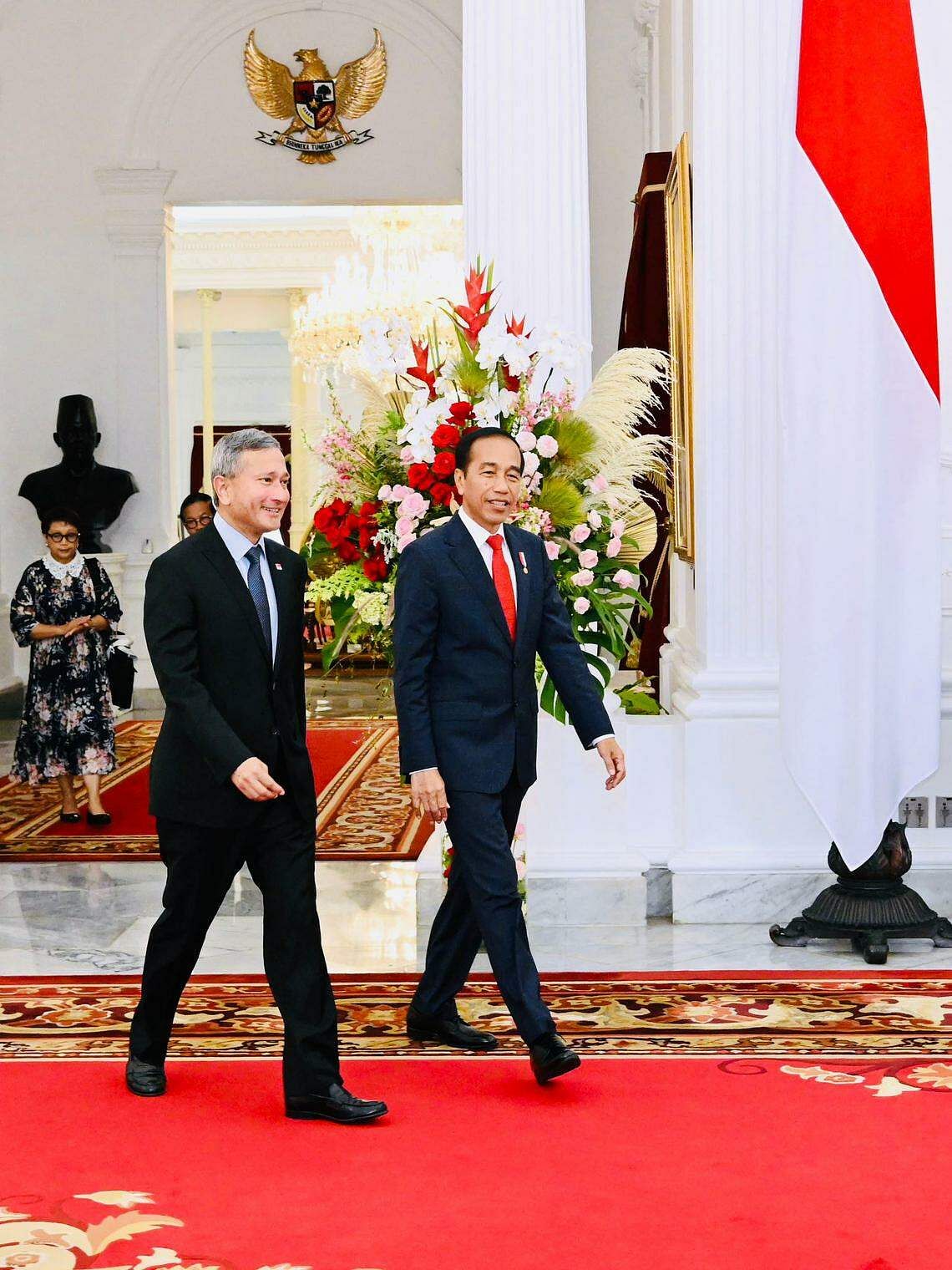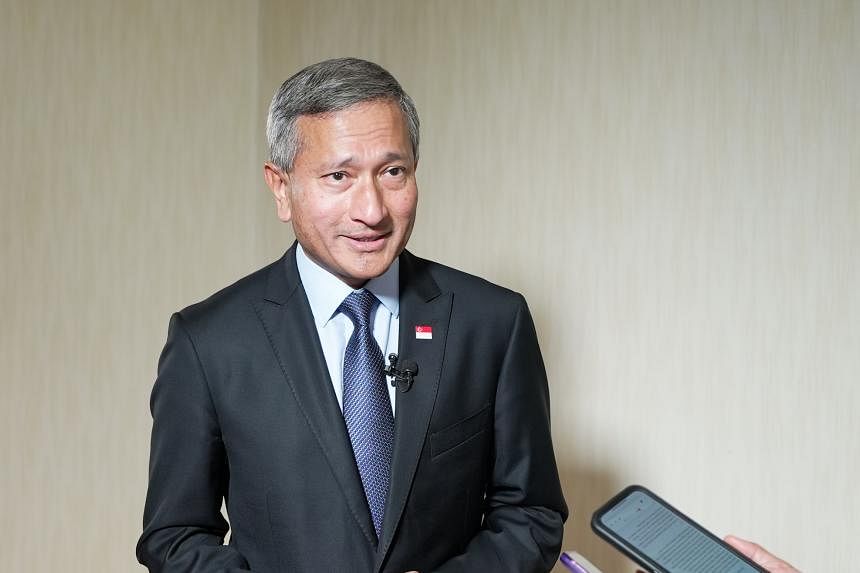JAKARTA - The world is in an unsettled state, making it all the more important for Singapore to double down on relationships with its immediate neighbours, said Foreign Minister Vivian Balakrishnan.
Indonesia is “up there” on the list of priorities for Singapore, and work will continue to increase collaboration and deepen ties between the two countries, said Dr Balakrishnan on April 26.
Speaking to Singapore media at the close of a four-day visit to Jakarta, he noted how conflicts in Europe and the Middle East are not showing signs of quick resolution, and are causing division among countries.
“So the world is in an unsettled state. But given that, it’s all the more important to double down on our relationships with our immediate neighbours and within Asean,” he said.
He added: “These vital relationships put Indonesia up there in the list of top priorities.”
A highlight of the relationship between Singapore and Indonesia is the implementation of the three landmark pacts between the two countries, which officially came into force in March, he said.
These pacts signed in January 2022 are the 2022 Agreement on the Realignment of the Boundary between the Jakarta Flight Information Region and the Singapore Flight Information Region; the 2022 Treaty for the Extradition of Fugitives; and the 2007 Defence Cooperation Agreement.
Their implementation has been hailed as a milestone in the relations between Singapore and Indonesia.
“I cannot overstate the significance of us arriving at these agreements – not just arriving at agreement, but they are being implemented now. Again, the longstanding issues resolved under Prime Minister Lee and President Jokowi will be one very major set of achievements,” he said, using the moniker by which President Joko Widodo is widely known.
At the same time, other agreements are also being worked on, added Dr Balakrishnan, including those in fields like the green economy and digital economy.
Responding to a question on areas of cooperation between the two countries, he noted how Singapore has been Indonesia’s largest foreign investor for a decade.
In 2023, Singapore recorded US$15.4 billion (S$21 billion) of foreign direct investment into the archipelago, and bilateral trade reached US$69 billion that year.
The minister said that for Singapore, working with Indonesia makes sense both economically and strategically, given how the archipelago is the largest Asean member, and how there are benefits to the wider region as well.
“Because Indonesia is the largest state in Asean, the agreements and arrangements that we make with Indonesia can also act as a template, as a kind of a stepping stone, to larger Asean arrangements. So I am very optimistic about the future.”
During his visit, Dr Balakrishnan met several past and present Indonesian leaders. This included a meeting on April 23 with Defence Minister Prabowo Subianto, who won the country’s presidential election on Feb 14 and will take over from President Widodo in October.
“During the course of this week, I also had an opportunity to have long discussions with the President-elect Prabowo who has impressed me with his clarity, his determination, his passion to lead and to make a difference, and at the same time, to build on the foundation that President Jokowi has laid,” he said.
He also met former Indonesian presidents Susilo Bambang Yudhoyono and Megawati Soekarnoputri.
At a meeting with President Widodo on April 26, Dr Balakrishnan said the pair discussed the upcoming Singapore-Indonesia Leaders’ Retreat, which will be held on April 29 in Bogor, West Java.

The talks, which are the highest-level bilateral platform for the two countries, will see not just the announcement of new agreements, but also a celebration of achievements in the past decade, said the minister.
“Relations between Indonesia and Singapore have reached new heights – so it will be a celebration of achievements. It will also be a symbol of continuity,” he added.
Casting his eye on the wider region, Dr Balakrishnan said that it is crucial for Singapore to work with Malaysia, Indonesia and other Asean members, in order to maintain South-east Asia’s identity as a united and cohesive zone of peace.
Doing so will let the world know that the region is focused on economic development, closer integration, and maximising opportunities that up-and-coming sectors like the green economy and digital economy represent.
Dr Balakrishnan highlighted ongoing discussions on the possibility of importing renewable energy in the region and the moves to establish an Asean power grid, which he said will mean that South-east Asia could rely more and more on green energy, rather than coal-based sources of energy.
Given how Asean is so dispersed and so wide, he said that such a grid will actually lower the overall cost of energy in the region, making it more competitive industrially. “So that is the stuff we are doing on green energy, on power grids. Not just bilaterally, but as part of an Asean network. That really enhances our competitiveness for the future,” he added.
The potential of such projects is why Singapore has been focused on its Asean strategy, said Dr Balakrishnan. He pointed out how before this trip to Indonesia, he had made a trip to the Philippines the week before to meet leaders there.
“The key point is to differentiate Asean, and to tell businesses the world over (to) engage Asean on our own merits, look at our economic potential,” he said.


